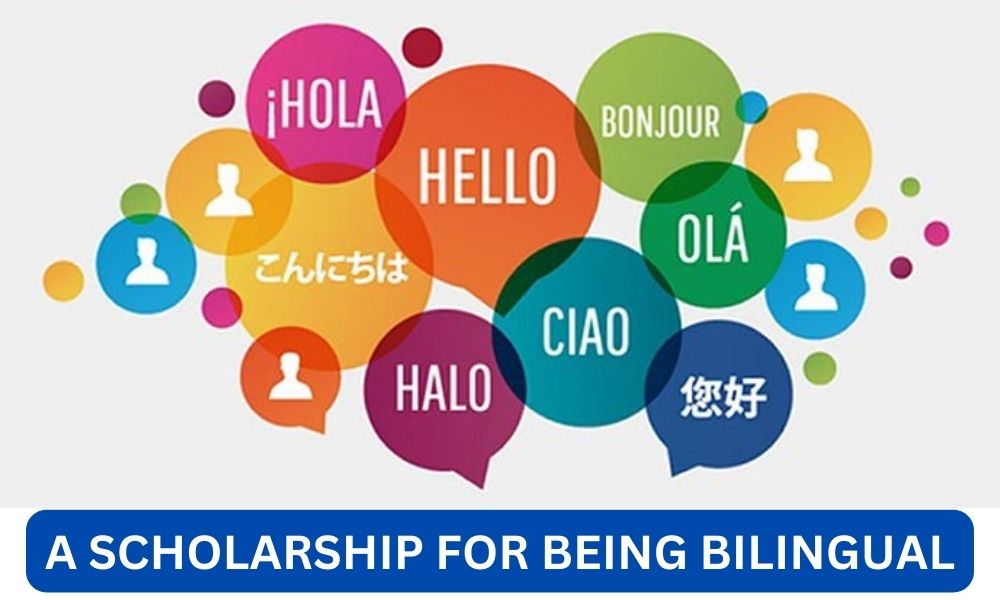Being bilingual is a valuable skill that can open up numerous opportunities in today’s globalized world. From improved cognitive abilities to enhanced job prospects, the benefits of being bilingual are well-documented. However, one question that often arises is whether being bilingual can help you secure a scholarship. In this article, we will explore the various ways in which bilingualism can lead to scholarship opportunities and the factors that influence the availability of such scholarships.
The value of bilingualism
Bilingualism refers to the ability to speak and understand two languages fluently. It is estimated that more than half of the world’s population is bilingual or multilingual. In addition to the obvious advantage of being able to communicate with a wider range of people, bilingualism offers several cognitive, social, and economic benefits.
Research has shown that bilingual individuals have better problem-solving skills, enhanced memory, and improved multitasking abilities compared to monolingual individuals. Bilingualism also promotes cultural understanding and empathy, as it allows individuals to connect with people from different backgrounds and perspectives.
From an economic standpoint, being bilingual can significantly increase job prospects and earning potential. Many companies and organizations value employees who can communicate with international clients and navigate different cultures. Bilingual individuals often have a competitive edge in the job market, especially in fields such as translation, interpretation, international business, and diplomacy.
Read:Can sophomores get scholarships?Scholarships for bilingual students
Recognizing the value of bilingualism, many scholarship programs have been established to support and encourage bilingual students. These scholarships aim to reward students for their language skills and provide financial assistance to pursue higher education.
1. Language-specific scholarships: Some scholarships are specifically designed for students who are fluent in a particular language. For example, the Critical Language Scholarship Program, funded by the U.S. Department of State, offers scholarships to U.S. undergraduate and graduate students to study critical languages such as Arabic, Chinese, Russian, and many others. These scholarships cover the cost of language study abroad programs and provide a stipend for living expenses.
2. Bilingual achievement scholarships: Many universities and colleges offer scholarships to students who have demonstrated exceptional bilingual skills. These scholarships may require applicants to submit essays, letters of recommendation, or participate in interviews to showcase their language proficiency. For example, the University of California, Los Angeles (UCLA) offers the Eugene Cota-Robles Fellowship, which supports graduate students who have overcome significant educational, social, or economic barriers and have demonstrated a commitment to diversity and bilingualism.
3. Heritage language scholarships: Heritage language scholarships are specifically aimed at students who have grown up speaking a language other than English at home. These scholarships recognize the importance of preserving heritage languages and cultures. The Korean American Scholarship Foundation, for instance, offers scholarships to Korean American students who have demonstrated academic excellence and a commitment to their Korean heritage.
Read:Can you get a scholarship for cosmetology?Factors influencing scholarship availability
While there are scholarships available for bilingual students, it is important to note that the availability and criteria for these scholarships can vary depending on several factors:
1. Language demand: Scholarships are often offered for languages that are in high demand due to economic, political, or cultural factors. For example, scholarships for Mandarin Chinese or Arabic may be more readily available compared to less commonly spoken languages.
2. Geographical location: Scholarships may be more prevalent in regions with a higher concentration of bilingual individuals or a diverse population. Urban areas with large immigrant communities or international student populations are more likely to have scholarship opportunities for bilingual students.
3. Field of study: Some scholarships may be specific to certain fields of study. For instance, scholarships for bilingual students pursuing degrees in language-related disciplines such as linguistics, translation, or interpretation may be more common.
4. Academic performance: Many scholarships have academic requirements, such as a minimum GPA or standardized test scores. Bilingual students with strong academic records may have a higher chance of securing scholarships.
Conclusion:
Read:How Do you start a scholarship?Bilingualism is a valuable skill that can open doors to various opportunities, including scholarships. Scholarships for bilingual students exist to recognize and reward language proficiency, cultural understanding, and academic excellence. Language-specific scholarships, bilingual achievement scholarships, and heritage language scholarships are just a few examples of the types of scholarships available.
However, it is important to note that the availability of scholarships for bilingual students can vary depending on factors such as language demand, geographical location, field of study, and academic performance. Therefore, it is crucial for students to research and explore scholarship opportunities that align with their language skills and academic goals.
Ultimately, being bilingual can enhance your chances of securing scholarships, but it is not the sole determining factor. It is essential to showcase your language skills, academic achievements, and personal experiences effectively in scholarship applications to maximize your chances of success.









